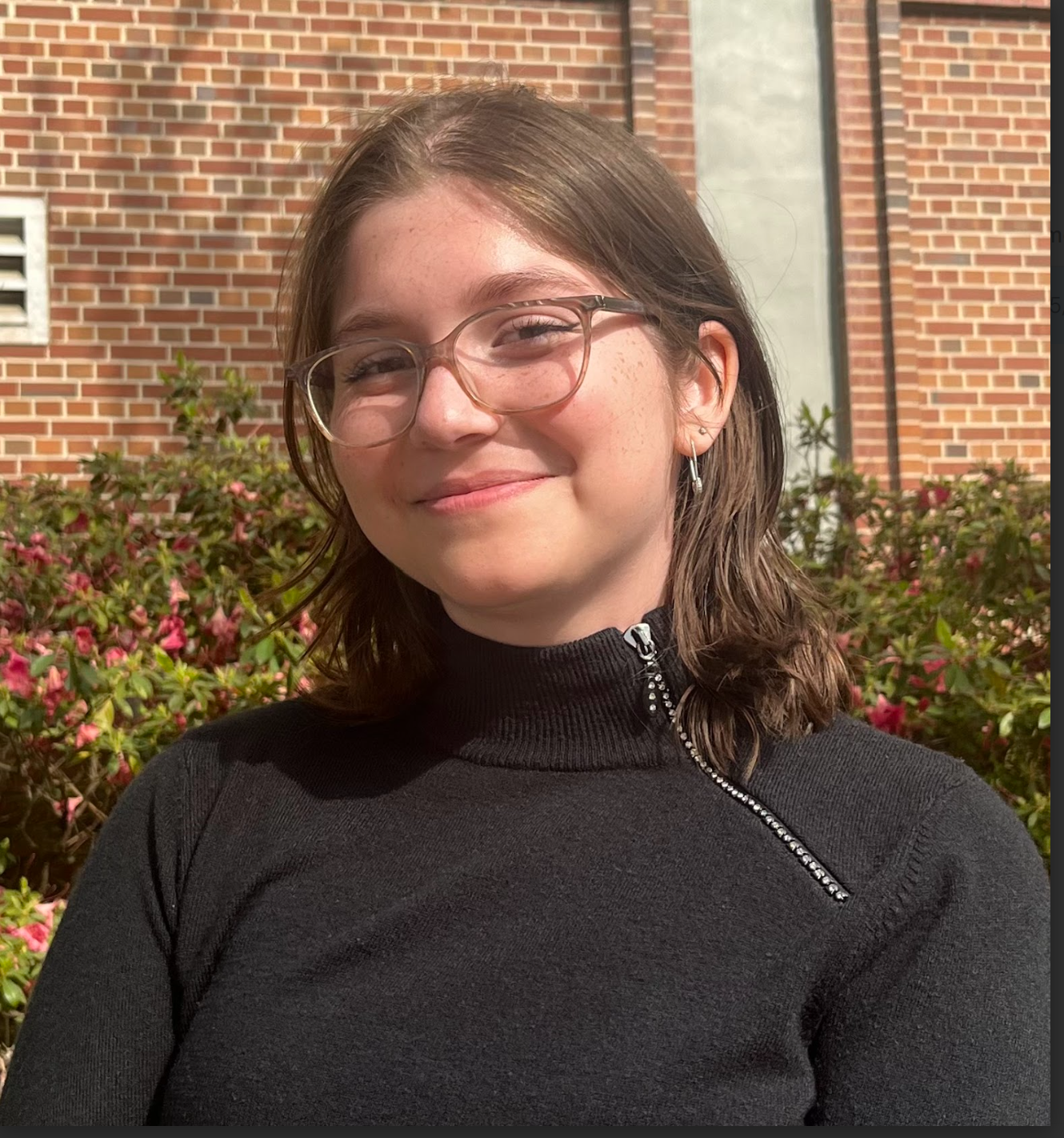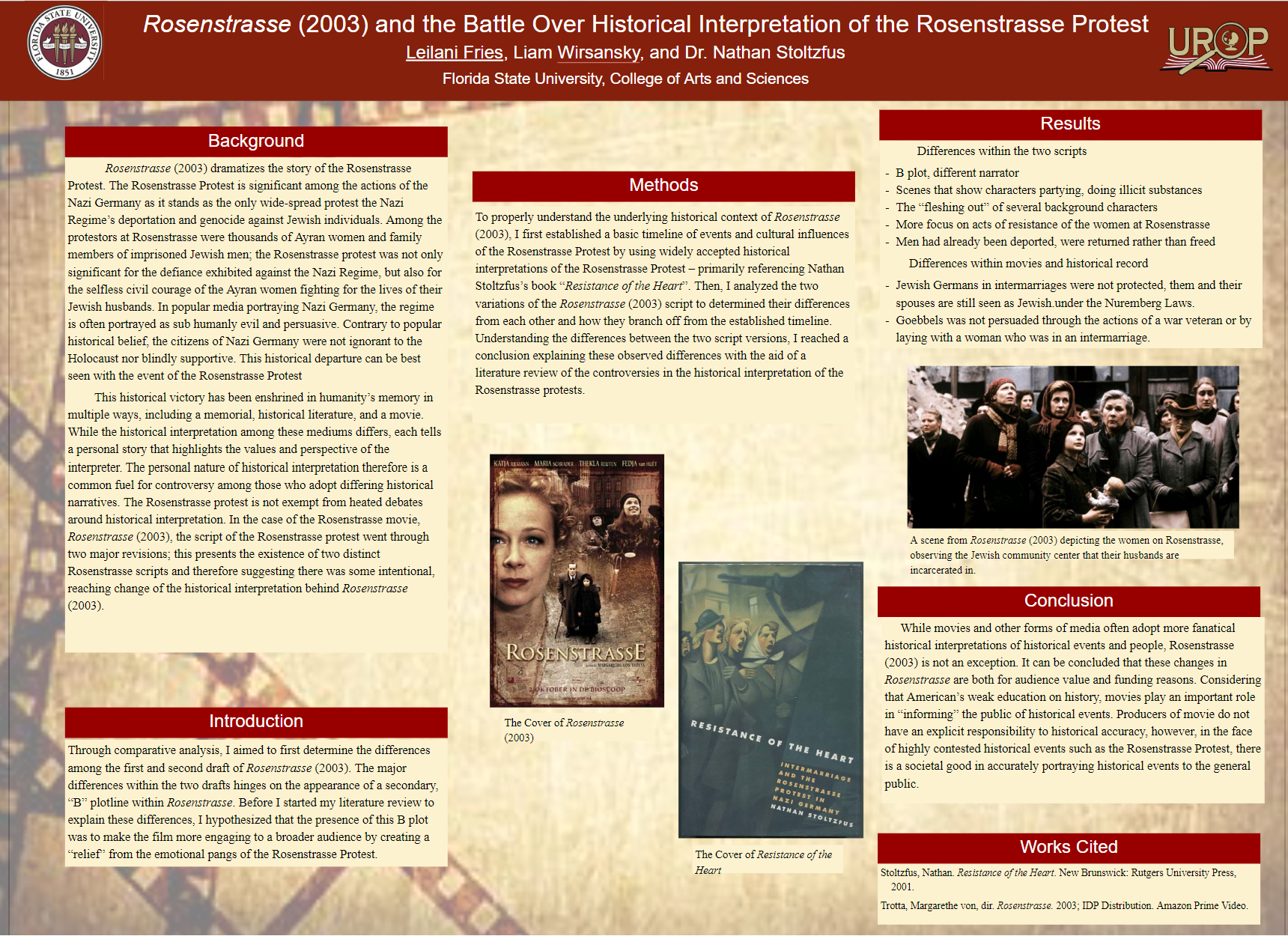Research Symposium
24th annual Undergraduate Research Symposium, April 3, 2024
Leilani Fries Poster Session 2: 10:45 am - 11:45 am/16

BIO
I'm currently a sophomore here at Florida State University, where I am to further my understanding in history and politics.
Rosenstrasse (2003) and the Battle Over Historical Interpretation of the Rosenstrasse Protest
Authors: Leilani Fries, Nathan StoltzfusStudent Major: History and Political Science
Mentor: Nathan Stoltzfus
Mentor's Department: Department of History Mentor's College: College of Arts and Sciences Co-Presenters:
Abstract
During the Nazi regime, those that were stuck in the middle betweem the categorizations of Jewish and Aryan relationships (Mischling) found themselves in a unique position in Nazi Germany. On February 27, Intermarried Jewish men were taken by the SS and detained with intent for deportation; in response, their wives protested on Rosenstrasse for seven days.
However, this historical interpretation of the Rosenstrasse Foundation is contested. Many argue that the Aryan wives’ protest did not free their husbands, as the regime never intended to deport these men in the first place. This historical debate culminates in the creation of the Rosenstrasse (2003) movie. While the final draft of the Rosenstrasse (2003) touted the “anti-protest” historical position, upon analyzing the first draft it becomes clear that a different historical interpretation was originally intended. This research project aims to determine why this historical interpretation was chosen by comparing these two Rosenstrasse (is enough) movie drafts. First by creating a “neutral” timeline of events of the Rosenstrasse protest, we will compare how these two drafts diverge in their historical interpretation. By doing this, it can be concluded that the intention of the final Rosenstrasse (2003) script was to create a more entertaining movie rather than an accurate historical recounting.
Keywords: history, Rosenstrasse, movie

